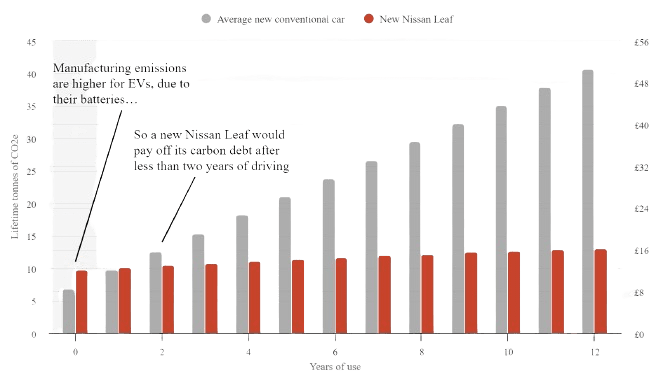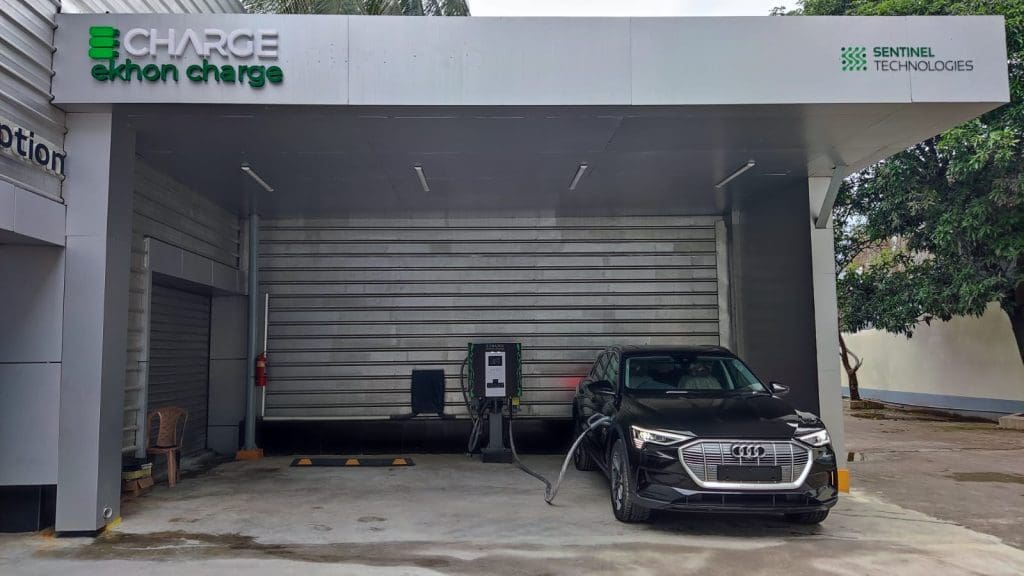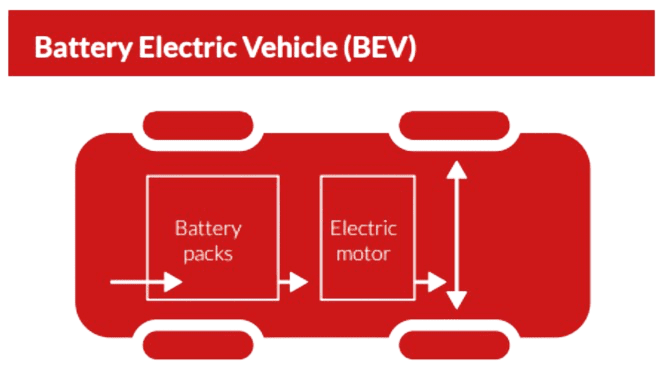In the wake of a global shift towards sustainable and efficient transportation, Bangladesh is looking forward to becoming a promising hub for the electric vehicle (EV) industry. Bangladesh’s first EV manufacturing factory is under construction in Mirsarai, Chattogram with a BDT 14.4 bn investment by Bangladesh Auto Industries Limited (BAIL).
With an investment of Tk 1,400 crore, Bangladesh is spearheading the establishment of a state-of-the-art EV factory in Chattogram, set to launch domestically produced EVs by March next year. As the nation works towards reducing its carbon footprint by 21.85% by 2030, the EV sector is gaining traction, backed by robust infrastructure development and forward-thinking policies. The country’s commitment to fostering a green future is evident as local companies like Walton and Bangladesh Auto Industries are gearing up to manufacture a range of EVs, from two-wheelers to sedans and buses. With a growing emphasis on sustainability and a supportive regulatory framework, Bangladesh pledges to embrace a revolution in transportation, heralding a new era in its automotive landscape.
0
%
Carbon Reduction by 2030
A recent study conducted by the World Health Organization has shed light on a pressing issue in Dhaka – air pollution, which is identified as a significant public health threat, causing over 12,000 deaths annually. The alarming statistics underscore the urgent need for effective measures to address this critical concern. Embracing electric vehicles (EVs) emerges as a promising solution, offering the potential to substantially reduce air pollution levels in the city. The transition to EVs would mitigate the emissions of harmful pollutants associated with traditional combustion engine vehicles, directly impacting the air quality and, consequently, the health of Dhaka’s residents. This shift aligns with a broader global trend towards sustainable transportation, emphasizing the pivotal role EVs play in fostering healthier and more livable urban environments.
Effectiveness of Electric Vehicles
Electric vehicles (EVs) are comparatively a new kind of vehicle that runs on electricity instead of gasoline, diesel or any flammable fuels. As they run completely relying on electricity, EVs are changing how we think about driving. They don’t produce pollution like regular cars do. EVs use special batteries to store electricity, and they come in different types like fully electric cars (BEVs), which only use electricity, and plug-in hybrids (PHEVs), which use both electricity and some gasoline fuel. EVs are getting more popular because they help reduce air pollution and are better for the environment. As technology improves, EVs are also becoming smarter and more connected, making driving a more modern and eco-friendly experience for people around the world.
Fuel Efficiency
Unlike traditional internal combustion engine vehicles that rely on fossil fuels, EVs operate solely on electricity stored in advanced batteries. This results in significantly higher fuel efficiency, translating to fewer energy resources consumed per mile traveled.
Pounds of CO2 Equivalent
Source: Alternative Fuels Data Center
No Data Found
Less Carbon Emissions
EVs produce zero tailpipe emissions during operation, reducing air pollution and contributing to improved air quality. The environmental benefits extend beyond reduced greenhouse gas emissions, as the shift towards EVs supports the global commitment to combating climate change. As technology continues to advance, EVs play a pivotal role in fostering sustainable transportation practices, offering a cleaner and greener alternative for a more eco-conscious future.

While it’s true that the manufacturing process of electric vehicles (EVs) involves the production of batteries, which can contribute to higher initial carbon emissions, the environmental equation shifts significantly during the vehicle’s operational phase. Research indicates that, on average, after just two years of driving, EVs begin to offset the carbon emissions generated during their production. Over the entire lifecycle, EVs prove to be substantially more environmentally friendly than conventional cars. Globally, EVs emit approximately three times less carbon dioxide (CO2) than their traditional counterparts. This reduction is primarily attributed to the absence of tailpipe emissions during EV operation and the continuous decrease in the carbon intensity of electricity generation as more renewable energy sources are integrated into the power grid. As such, the long-term environmental benefits of EVs make them a crucial component in mitigating the impact of transportation on climate change.
Bangladesh’s Introduction to EVs
Hybrid Electric Vehicles (HEVs) have been present in the Bangladeshi market for an extended period. The first introduction occurred in the fiscal year 2002-3 when 30 Toyota reconditioned HEVs were brought in by local importers. Despite HEVs offering a more fuel-efficient option compared to traditional cars, they faced challenges in gaining consumer popularity. Issues such as concerns about their longevity and lower resale value previously had contributed to HEVs remaining in a grey area in the Bangladeshi automotive landscape.
Imports of Hybrid Cars (Units)
Source: The Business Post
No Data Found
However, recently import of HEVs has seen remarkable growth, with a staggering 154% increase from 3,296 units in FY18 to 8,366 units in FY21. This rise is attributed to the lower cost of maintenance and enhanced fuel efficiency offered by these vehicles. Hybrid models like the Toyota Aqua, Honda Grace, and Nissan X-Trail have particularly captured the interest of Bangladeshi consumers.
0
%
Increase in Import of HEVs
Additionally, the country has witnessed the widespread use of electric three-wheelers, commonly known as ‘Easy Bikes,’ with nearly 4 million traversing its streets. While these vehicles have become primary modes of public transportation in rural areas, they face controversy due to the use of environmentally harmful lead-acid batteries and illegal electricity connections for charging. Furthermore, safety concerns arise from the design of these ‘Easy Bikes.’ Despite the challenges, the growing interest in alternative transportation options signals a shifting landscape in Bangladesh’s automotive market.
0
Mn
Easy Bikes on the Streets
The full adoption of fully electric vehicles (EVs) in the Bangladeshi consumer market is still in its infancy, primarily hindered by infrastructure challenges. Currently, the trend indicates that only individuals with higher income levels are opting for EVs, often as secondary vehicles. According to records, a modest count of 34 EVs is presently registered in Bangladesh, underscoring the slow but emerging presence of electric vehicles in the local automotive landscape.

Barriers in EV Adaptation
Absence of a Clear Policy-Institutional Framework
The lack of a well-defined policy and institutional framework for electric vehicle (EV) adoption in Bangladesh hinders the establishment of a comprehensive roadmap for the integration of EVs into the transportation ecosystem.
Limited EV Regulation
The absence of robust regulations, including the limited registration of existing EVs and operational guidelines, creates uncertainty and impedes the streamlined growth of the EV sector.
Inadequate Incentives
Insufficient incentives for both EV users and businesses contribute to a slower-than-desired adoption rate. A lack of financial and non-financial incentives may discourage potential users and entrepreneurs from investing in EVs.
Scarce EV Charging Facilities
The scarcity of EV charging facilities across the country poses a significant challenge. A limited charging infrastructure restricts the practicality and convenience of using EVs on a broader scale.
Scarce EV Charging Facilities
The scarcity of EV charging facilities across the country poses a significant challenge. A limited charging infrastructure restricts the practicality and convenience of using EVs on a broader scale.
Existence of Fossil Fuel-Based Charging Stations
The prevalence of fossil fuel-based charging stations introduces a counterproductive element, as it contradicts the environmentally friendly goals of EV adoption. This undermines the transition towards cleaner energy sources.
Lack of Availability of EV-Related Statistics
The absence of a centralized and accurate database detailing the number of EVs creates challenges in gauging the growth and impact of the EV market. Divergent figures from different sources contribute to this information gap.
Absence of Technical Guidance
The absence of technical guidance for standardizing and ensuring the quality of EV accessories adds a layer of uncertainty in the industry. Clear standards are vital for fostering consumer trust and industry growth.
Shortage of Technical Manpower on EV
A shortage of skilled technical manpower specializing in EV technology compounds the challenges. A lack of trained professionals can impede the development, maintenance, and repair of EVs.
Lack of Appropriate Awareness
Insufficient awareness about EV operation, usage, and business potential hampers widespread acceptance. Clear communication and educational initiatives are crucial for dispelling myths and encouraging informed decision-making.
First Fully Electric Charging Station
Stepping one step further in the EV world with Bangladesh’s inaugural electric vehicle (EV) charging station was unveiled in Tejgaon, Dhaka. Branded as “Ekhon Charge” and spearheaded by Progress Motors Imports Limited, the station marks the beginning of a clean energy revolution. Progress Motors plans an ambitious expansion, with 11 additional stations slated for installation by 2024.
0
km
In Single Charge
The charging points promise swift charging, allowing a car to reach full capacity in just 20-30 minutes, enabling EVs to cover up to 500 kilometers on a single charge—a perfect fit for Bangladeshi commuters.
Electric Vehicle Policies
The Automobile Industry Development Policy 2021
Steered by the Ministry of Industry, Bangladesh envisions a radical shift towards electric vehicles (EVs) by 2030. Propelling this transition are a series of strategic proposals, including a 10-year tax holiday for local EV assembling and manufacturing, financial incentives, purchase subsidies, road tax and EV registration fee waivers, as well as VAT/Import Duty reductions. The policy also champions the establishment of battery recycling industries and a robust charging station network. To oversee these transformative initiatives, the proposal suggests creating an EV Cell within the Bangladesh Road Transport Authority. Additionally, the policy outlines the formation of an “Energy-Efficient Vehicle Manufacturing Fund,” funded by fines and taxes from environment-polluting vehicles, to further catalyze the nation’s electric mobility revolution.
Electric Vehicle Registration & Operation Policy -2022 (Under Review)
Under the guidance of the Road Transport and Highways Department (RTHD), Bangladesh is gearing up for a monumental shift in its vehicle registration norms to accommodate electric vehicles (EVs). These forward-looking changes involve assigning a distinct “E” or “EV” category for EV registrations. The registration fee for EVs will be computed based on motor capacity (kW), aligning with the conventional Internal Combustion Engine (ICE) vehicles that follow engine CC criteria.
A noteworthy stipulation dictates that only brand new EVs will be eligible for import, with a potential future allowance for reconditioned EVs contingent on technical advancements. The directive mandates the use of lithium-ion or more advanced, eco-friendly batteries in EVs, with a transitional provision allowing lead-acid batteries until December 31, 2025. To ensure compliance and regulation, manufacturers and assemblers of EVs are required to register with the Bangladesh Investment Development Authority (BIDA). This comprehensive framework signals Bangladesh’s commitment to fostering a sustainable and technologically advanced electric mobility landscape.
EV Charging guideline/policy (draft)
Under the supervision of SHREDA, the guidelines describe the coexistance of Private and Commercial Charging Stations, elucidating technical standards and emphasizing the imperative of connection compliance. It also describes the institutional framework, robust institutional arrangement to streamline the integration and operation of EV charging infrastructure. Addressing the economic aspect, the document navigates through tariff structures and incentives, crucial elements in incentivizing widespread EV adoption. While concise, this policy draft lays a solid foundation for the comprehensive development of a user-friendly and economically viable EV charging network across Bangladesh.
Cover Photo: Electric vehicles in a display centre of Audi in the capital’s Tejgaon area. (Jahidul Karim/Prothom Alo)
About the Author

Hamim Mubtasim is the Brand Manager at The Confluence. He is currently pursuing his undergraduate studies at the Institute of Business Administration, University of Dhaka. A business student by choice and marketing geek by passion, he aspires to manage big brands someday.
